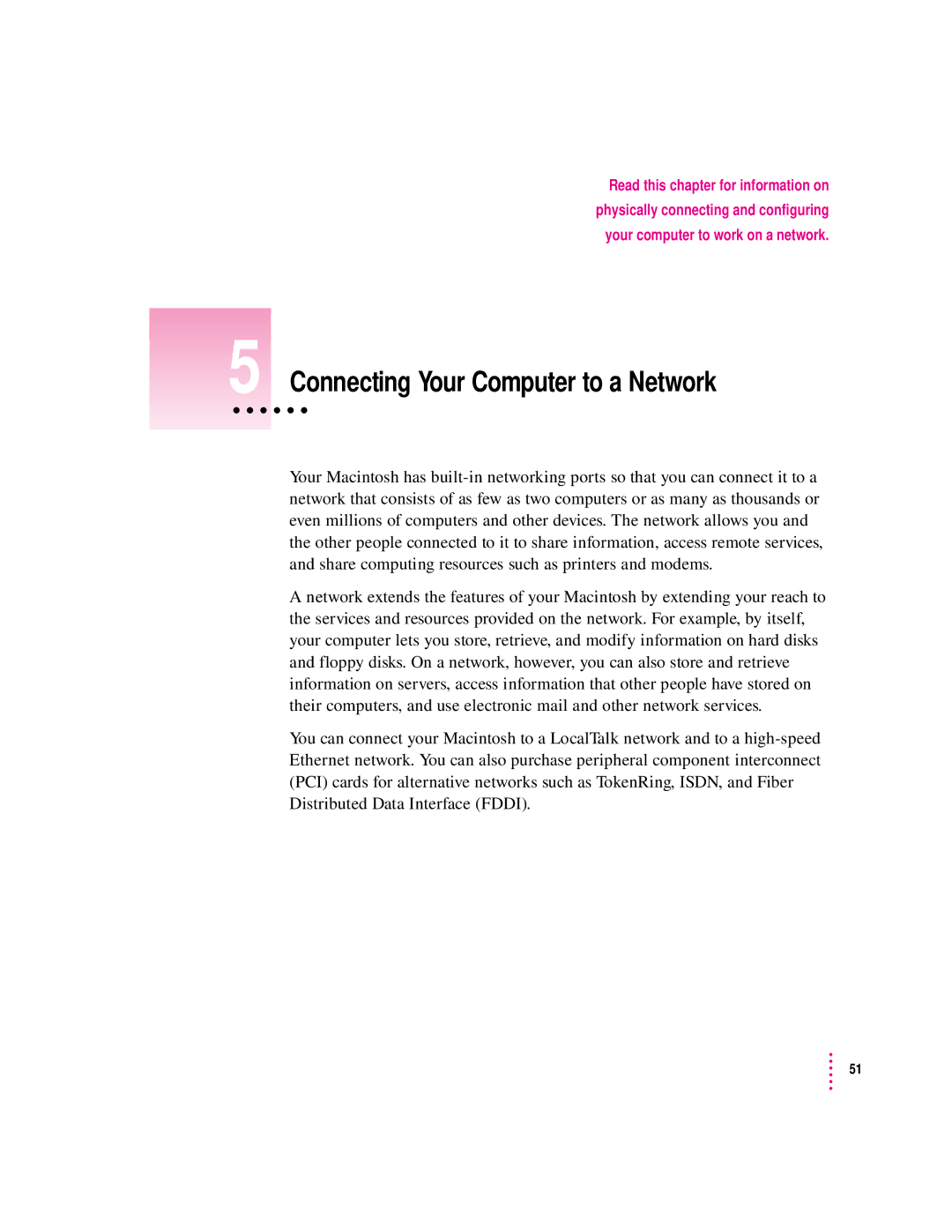
Read this chapter for information on
physically connecting and configuring
your computer to work on a network.
5 Connecting Your Computer to a Network
Your Macintosh has
A network extends the features of your Macintosh by extending your reach to the services and resources provided on the network. For example, by itself, your computer lets you store, retrieve, and modify information on hard disks and floppy disks. On a network, however, you can also store and retrieve information on servers, access information that other people have stored on their computers, and use electronic mail and other network services.
You can connect your Macintosh to a LocalTalk network and to a
51
